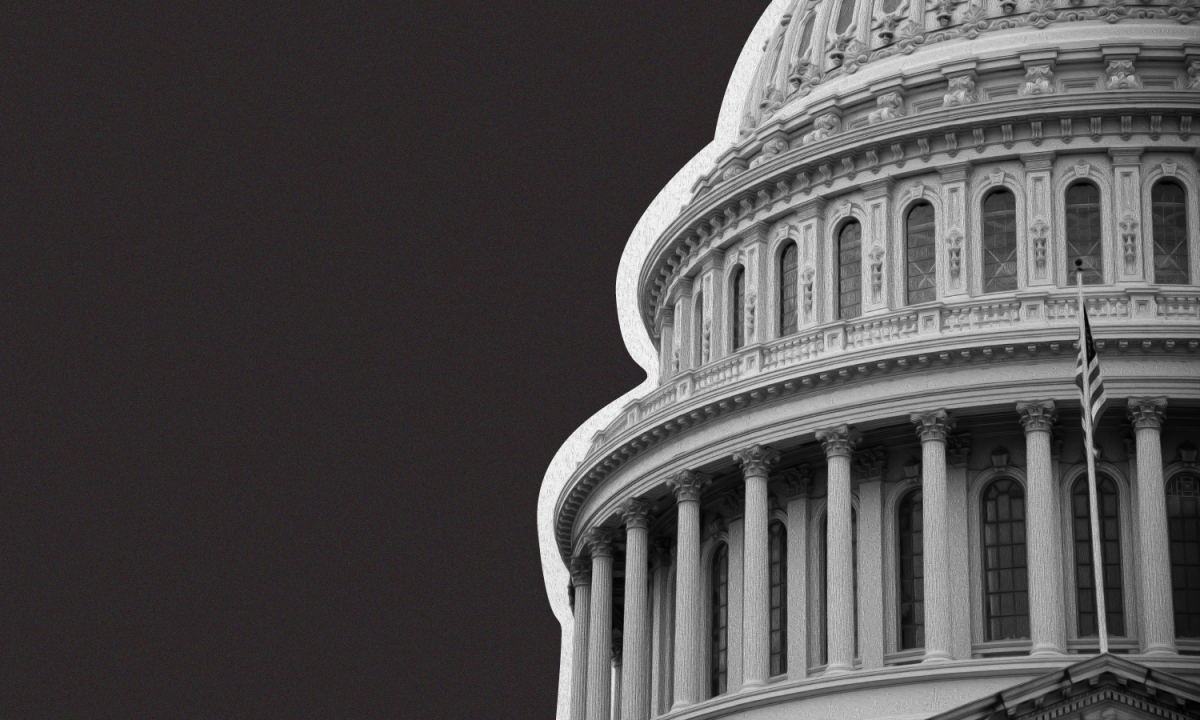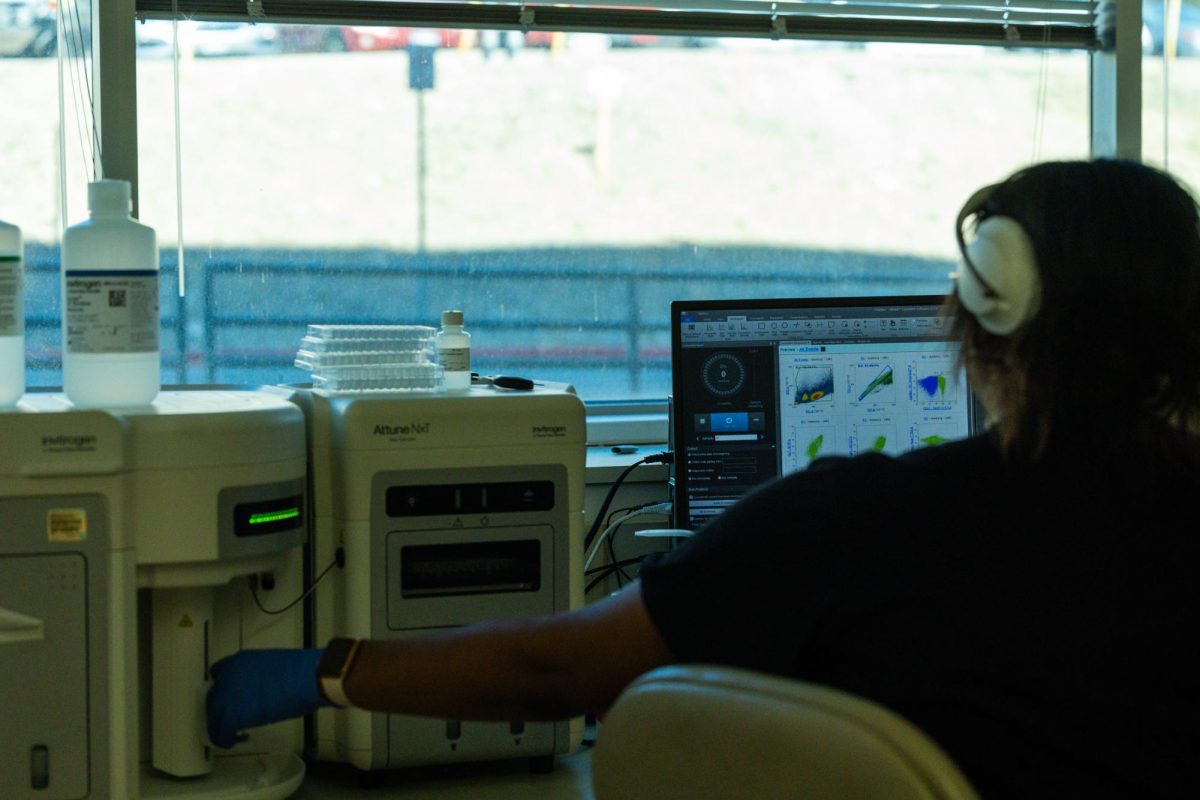Just before the pandemic, a female graduate student began working in a University of Utah lab to complete her doctorate degree. One year later, she feared she would be deported.
Shortly into her work at the lab, the student became a victim of discrimination at the hands of her professor. After conferring with other women in the lab, she was advised by a peer to file a complaint through the Office of Equal Opportunity And Affirmative Action. Once the professor was notified of the ongoing investigation, the discrimination intensified and the attacks worsened, according to the victim. OEO found that there was insufficient evidence for the professor to face consequences. The victim and her witness claim the conclusion of the hearing was unfair.
After their dissatisfaction with the OEO ruling, one of the victim’s witnesses encouraged the victim to reach out to the Daily Utah Chronicle. That witness will be referred to as Witness B. The victim, who wishes to remain anonymous due to fear of further retaliation, will be referred to as Student A for the remainder of this article.
Bullying, Harassment, and Discrimination
Student A first joined the lab in 2019. She said over the next couple of months the discrimination started coming from her professor.
“It was microaggressions,” Student A said, explaining how it took time to realize that there was something wrong. Her experience was filled with “discriminatory acts, harassment, intimidation, and bullying.”
In one instance, the professor forced Student A to do his dishes.
“We were in a lab and we were working with glassware,” she said. “He basically filled all dirty glassware into one sink and had me clean it up.”
Student A recalls physical intimidation that happened in the lab, sharing how “personal space was basically non-existent.”
“He stood like six inches to a foot from me at all times,” she said. “It was like I could move my hand and hit him. It was that bad.”
The student stated that the professor continued this during the pandemic without regard to the importance of social distancing.
Student A also experienced mental health issues brought on by her experience in the lab, describing her “extreme depression.” She said she experienced “the most stress I’ve ever felt in my life.”
“My work was getting severely affected,” Student A said. “I could hardly stay in the lab without breaking down. I was having a breakdown almost every two hours or so in the lab.”
Student A remembered that “gaslighting happened quite a bit.”
“I’m still struggling with confidence issues,” she said.
Her confidence decreased further when she felt like she couldn’t express her thoughts due to the intimidation coming from her professor.
“My opinions were ignored,” Student A said. “Many times my advisor spoke over me or raised his voice at me while talking.”
The events in the lab led to Student A being diagnosed with PTSD, which she is still dealing with.
“I can confirm that my friend was emotionally traumatized by how she was treated by her boss during the time she worked for him,” Witness B said.
Student A’s health declined further when she experienced health issues due to a car accident and received no support from her lab.
“The injuries were pretty serious at the time. I couldn’t walk for like, five to six months,” she said.
She described how she could hardly move, resulting in her walking “at a speed of like, one to two inches per second, if you can imagine that.”
Witness B observed Student A’s health issues in the lab and felt that she was unaware of the resources available for her aid.
“She needed, at one point in her Ph.D., an ADA accommodation and she didn’t even know what ADA accommodations were,” Witness B said. “Her faculty mentor caused a big fuss over the fact that she couldn’t stand for 8 hours a day.”
Regardless of her health issues, Student A didn’t get relief or an extension for her work.
“He expected me to work full time in the lab and it was very clear that I couldn’t even walk,” Student A said. “And the deadline was not pushed back.”
“The quality of my research fell drastically,” she said about the lack of an extension, “and he brought up complaints about the quality of my research.”
Student A felt rushed to complete her research, being “subjected to an unusually limited timeline” to finish her work in the lab.
“Although I transferred from a different department, I was explicitly not allowed to transfer any research,” Student A said. “This resulted in my research time being only 2.5 years, which is even more astounding considering that we had to go through a global pandemic.”
The discrimination was experienced by other students as well, resulting in another female student leaving the lab due to harassment. Together, some of the female lab members discussed filing a complaint with OEO.
Student A talked to Witness B about her struggles as well as her debate about filing with OEO.
“I don’t think she knew that the OEO process existed or would be helpful in any way,” Witness B said. “She actually dragged her feet to file the OEO report because she was terrified of trying to make any formal action.”
Reporting to OEO
Student A filed the formal OEO complaint in September 2021.
“When the complaint comes in we assign it to an equal opportunity consultant, and that person is an investigator,” Sherrie Hayashi, director of OEO/AA, explained. “And they conduct the investigation and they will make recommendations of whether they think that there’s been a policy violation or not.”
Hayashi said the length of an investigation is “sort of individually based on the complexity of the case … [and] really the cooperation and responsible parties.”
According to OEO policy, investigations should be completed in 60 days. Student A said the investigation “dragged on for almost a year.” In that time, the professor had become tenured, “basically making him untouchable.”
Once a complaint was filed and OEO decided to open an investigation, the professor was notified of Student A’s actions.
When a formal complaint is made, the accused is told “These are all your rights, these are all your responsibilities, and these are the specific allegations that are being presented,” Hayashi said. “And then we give them an opportunity to respond to that in writing and also interview.”
OEO conducts the reporting process through an investigator. The investigator then issues a “written report with their recommendations and findings,” Hayashi said. “Then it gets scheduled before a three-person hearing, and so the hearing committee is the one who actually makes the decision.”
Revenge and Retaliation
The notification of the filed complaint sparked the beginning of months of retaliation. Witness B notes that she was worried about filing in the first place as she knew “he would be notified.”
According to the Rape Abuse Incest National Network, “Title IX complaints should be free from retaliation. A person cannot be punished for reporting sexual violence, sex-based discrimination, or making a formal Title IX complaint.”
RAINN’s website also states that “colleges may not retaliate against a complainant for their action, and they must protect students from retaliation by third parties, as well.”
According to Student A, this was not the case. After she complained, the retaliation manifested in more extreme forms of discrimination.
“He did not put in a grade for me in my final semester,” Student A said, “which almost led to me being deported.”
OEO reports confirm that the professor did not enter grades. Since he did not enter grades for the final semester, it showed that Student A received zero credit hours, creating an “unofficial withdrawal,” which was grounds for deportation.
Witness B described the professor’s retaliation as a “vicious attack” against Student A.
“At a minimum, not entering grades was aggressively negligent,” she said.
The professor was on Student A’s thesis committee and remained on the committee after she complained about the discrimination. She said the night before her defense, “He wrote to my committee members saying that I had committed plagiarism in my thesis.”
The committee investigated for plagiarism and found that “there is not plagiarism in it on any account,” she said.
Emails shared by Student A show that the professor accused her of plagiarism and advised the committee to not let her thesis proceed. These records also confirm that the committee came to the unanimous decision that plagiarism was not committed.
Student A believes this was a purposeful attempt to delay her defense, stating that “He knew that there was a visa problem and that I had to defend by the end of the year.”
After her defense, Student A was asked by her committee to “do certain experiments … to tie up loose ends.” She was unable to continue the work due to her immediate termination by the professor.
“[My] defense was on the 22nd … the 23rd is when he fired me,” Student A said.
Emails show that the morning of the 23rd is when the professor fired her, and that the meeting for her defense was the 22nd.
This occurred in December 2021. Student A said she “had no idea because we went into Christmas break … I came back on January third and found out that I had been fired.”
Student A said the professor did not just fire her from the lab but went through HR to fire her as an employee of the university. Her termination prevented her from being able to complete her remaining experiments that her thesis depended on, delaying the completion of her thesis.
“It felt like he was trying to stop me from graduating,” Student A said. “He basically did everything he could to stop me from graduating.”
A Fair Trial?
“The initial verdict was that there is insufficient evidence for discrimination [or] harassment,” Student A said.
Hayashi said that an insufficient evidence finding “doesn’t necessarily mean that there isn’t misconduct or misbehavior that has occurred.” She explained “that’s always up to those other departments to determine whether or not there’s been a violation of other policies.”
The three-person hearing committee makes the decision of “whether or not there’s been a violation of policy,” Hayashi said. These committees are made up of “people throughout the university, so all of them are affiliated with the university.”
The hearing occurred without any of Student A’s witnesses being present. According to Witness B, this was “due to scheduling conflicts or [not wanting] to appear out of fear of retaliation.”
Witness B connects the insufficient evidence ruling to OEO’s neglect of her testimony.
“I was emailed about 48 hours before the hearing,” she said. “The first I heard that I was a witness in the case, I was emailed on July 27, 2022, and the hearing was scheduled for July 29, 2022.” Emails between OEO and the witness confirm these details.
“At the exact time of the hearing, I was actually flying back to Utah from a conference,” Witness B said. “[OEO] said ‘If you’re unable to attend, we will rely upon your statement to the investigator.’ I responded again and said ‘I never gave you a statement.’”
Witness B said the office “never talked to [her] before.”
OEO said they make adjustments when people cannot attend, said Hayashi, adding “hearings can be rescheduled.”
“We typically allow people pretty fluidly to ask for one reschedule and then they’re really going to have to show good cause, like someone’s not available,” Hayashi said. Email correspondence between Witness B and OEO shows that no reschedules were offered.
“[OEO] clearly said before that they would take blackout dates into account, and they did not,” Student A said. “Neither my support person nor my witness could make it during the day of the defense.”
“I heard from my friend that they didn’t read [my statement],” Witness B said. “As far as I know, it just was never mentioned. They skipped right over it.”
Hayashi states that evidence, including witness statements, “should be a part of the hearing record.” She said that all evidence “is attached as supporting documentation. We don’t filter any of that information.”
Hayashi said that if the accused is a faculty member, “it would be the department of the Office of Faculty Affairs who would be handling that recommendation for discipline.”
Student A believes the sanctioning official had a conflict of interest.
“The sanctioning official was the dean of the college who had an active grant [from] my professor, which means that he had reason to not take any action,” Student A said.
Grantome.com shows that the sanctioning official and professor accused of discrimination were involved with the same grant of $375,000. The project budget starts in 2020 and ends in 2023.
A journal article also shows the sanctioning official and the professor were co-authors on a paper published in 2018.
Student A added that the committee members were also white people, like the professor, who ruled on this case involving a female, international student of color.
The faculty pages for the people on the three-person committee confirm that the group was made up of two white men and one white woman.
“I think the two people who supported him the most during the hearing were a full professor in the department and the chair of the department,” Witness B said. “So he was like, well protected.”
Disappointment with the Outcome
Student A said the discrimination wasn’t just focused on her. Instead, it was “against female lab members,” who she said “felt the same way as me.”
Witness B said she had seen other employees, including one additional grad student and one post-doc, share similar experiences with Student A when interacting with the accused professor.
Student A said the most important part of this is “sexism for sure,” adding that “The STEM field is very much male-dominated.”
Both Student A and Witness B expressed disappointment in the OEO outcome.
“I’m hoping that the University is going to rethink the OEO policies,” Student A said. “I don’t want this kind of biased investigation going on with any future cases.”
Witness B describes how many women in the department were hopeful that justice would be served, not only in Student A’s case but for cases going on at the same time against other male faculty.
“They were like, ‘Oh, well they’re going to be held accountable … None of them [were],” Witness B said. “There were no consequences, there was no formal punishment,” Witness B said. “I don’t think that specific faculty should be employed by the university anymore.”
This experience has led to both women losing hope in the OEO process bringing direct change.
“It just said a lot about what kind of attitude they have towards female researchers in the field,” Student A said. “I have lost all faith in the process … [but] I would always recommend standing up.”
“I definitely thought they [OEO] would be much more helpful than they were,” Witness B said. “I don’t think they’re just trying to protect male faculty. I think they’re protecting the institution as a whole.”
Though acknowledging that OEO was not helpful in her case, Student A still advocated for students to push back against discrimination.
Students “might have to start off with higher-ups and the department of higher-ups in that college,” Student A said, advocating for students to first turn to other faculty before going to OEO. She strongly encouraged victims to “Get it known.”














